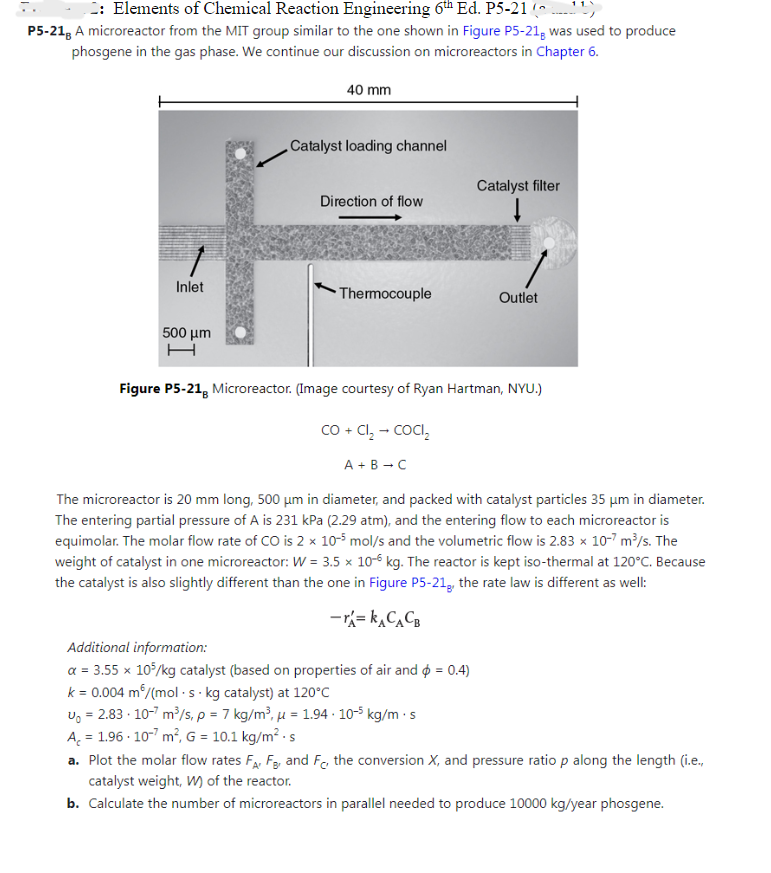Answered step by step
Verified Expert Solution
Question
1 Approved Answer
How do we use MATLAB and ODE to solbve this. Thanks. -: Elements of Chemical Reaction Engineering 6 Ed. P5-21. _.'!) P5-21A microreactor from the
How do we use MATLAB and ODE to solbve this. Thanks.

Step by Step Solution
There are 3 Steps involved in it
Step: 1

Get Instant Access to Expert-Tailored Solutions
See step-by-step solutions with expert insights and AI powered tools for academic success
Step: 2

Step: 3

Ace Your Homework with AI
Get the answers you need in no time with our AI-driven, step-by-step assistance
Get Started


